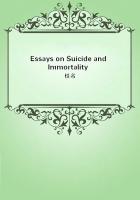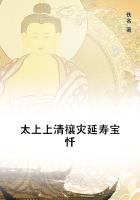Only I know that it is unforgettable. Again (Galahad speaks):-"I saw One sitting on the altar as a throne, Whose face no man could say he did not know, And, though the bell still rang, he sat alone, With raiment half blood-red, half white as snow."Such things made their own special ineffaceable impact.
Leaving the Arthurian cycle, Mr. Morris entered on his especially sympathetic period--the gloom and sad sunset glory of the late fourteenth century, the age of Froissart and wicked, wasteful wars.
To Froissart it all seemed one magnificent pageant of knightly and kingly fortunes; he only murmurs a "great pity" for the death of a knight or the massacre of a town. It is rather the pity of it that Mr. Morris sees: the hearts broken in a corner, as in "Sir Peter Harpedon's End," or beside "The Haystack in the Floods." Here is a picture like life of what befell a hundred times. Lady Alice de la Barde hears of the death of her knight:-"ALICE
"Can you talk faster, sir?
Get over all this quicker? fix your eyes On mine, I pray you, and whate'er you see Still go on talking fast, unless I fall, Or bid you stop.
"SQUIRE
"I pray your pardon then, And looking in your eyes, fair lady, say I am unhappy that your knight is dead.
Take heart, and listen! let me tell you all.
We were five thousand goodly men-at-arms, And scant five hundred had he in that hold;His rotten sandstone walls were wet with rain, And fell in lumps wherever a stone hit;Yet for three days about the barriers there The deadly glaives were gather'd, laid across, And push'd and pull'd; the fourth our engines came;But still amid the crash of falling walls, And roar of bombards, rattle of hard bolts, The steady bow-strings flash'd, and still stream'd out St. George's banner, and the seven swords, And still they cried, 'St. George Guienne,' until Their walls were flat as Jericho's of old, And our rush came, and cut them from the keep."The astonishing vividness, again, of the tragedy told in "Geffray Teste Noire" is like that of a vision in a magic mirror or a crystal ball, rather than like a picture suggested by printed words. "Shameful Death" has the same enchanted kind of presentment. We look through a "magic casement opening on the foam" of the old waves of war. Poems of a pure fantasy, unequalled out of Coleridge and Poe, are "The Wind" and "The Blue Closet."Each only lives in fantasy. Motives, and facts, and "story" are unimportant and out of view. The pictures arise distinct, unsummoned, spontaneous, like the faces and places which are flashed on our eyes between sleeping and waking. Fantastic, too, but with more of a recognisable human setting, is "Golden Wings,"which to a slight degree reminds one of Theophile Gautier's Chateau de Souvenir.
"The apples now grow green and sour Upon the mouldering castle wall, Before they ripen there they fall:
There are no banners on the tower, The draggled swans most eagerly eat The green weeds trailing in the moat;Inside the rotting leaky boat You see a slain man's stiffen'd feet."These, with "The Sailing of the Sword," are my own old favourites.
There was nothing like them before, nor will be again, for Mr.
Morris, after several years of silence, abandoned his early manner.
No doubt it was not a manner to persevere in, but happily, in a mood and a moment never to be re-born or return, Mr. Morris did fill a fresh page in English poetry with these imperishable fantasies. They were absolutely neglected by "the reading public,"but they found a few staunch friends. Indeed, I think of "Guenevere" as FitzGerald did of Tennyson's poems before 1842. But this, of course, is a purely personal, probably a purely capricious, estimate. Criticism may aver that the influence of Mr.
Rossetti was strong on Mr. Morris before 1858. Perhaps so, but we read Mr. Morris first (as the world read the "Lay" before "Christabel"), and my own preference is for Mr. Morris.
It was after eight or nine years of silence that Mr. Morris produced, in 1866 or 1867, "The Life and Death of Jason." Young men who had read "Guenevere" hastened to purchase it, and, of course, found themselves in contact with something very unlike their old favourite. Mr. Morris had told a classical tale in decasyllabic couplets of the Chaucerian sort, and he regarded the heroic age from a mediaeval point of view; at all events, not from an historical and archaeological point of view. It was natural in Mr. Morris to "envisage" the Greek heroic age in this way, but it would not be natural in most other writers. The poem is not much shorter than the "Odyssey," and long narrative poems had been out of fashion since "The Lord of the Isles" (1814).
All this was a little disconcerting. We read "Jason," and read it with pleasure, but without much of the more essential pleasure which comes from magic and distinction of style. The peculiar qualities of Keats, and Tennyson, and Virgil are not among the gifts of Mr. Morris. As people say of Scott in his long poems, so it may be said of Mr. Morris--that he does not furnish many quotations, does not glitter in "jewels five words long."In "Jason" he entered on his long career as a narrator; a poet retelling the immortal primeval stories of the human race. In one guise or another the legend of Jason is the most widely distributed of romances; the North American Indians have it, and the Samoans and the Samoyeds, as well as all Indo-European peoples. This tale, told briefly by Pindar, and at greater length by Apollonius Rhodius, and in the "Orphica," Mr. Morris took up and handled in a single and objective way. His art was always pictorial, but, in "Jason" and later, he described more, and was less apt, as it were, to flash a picture on the reader, in some incommunicable way.














